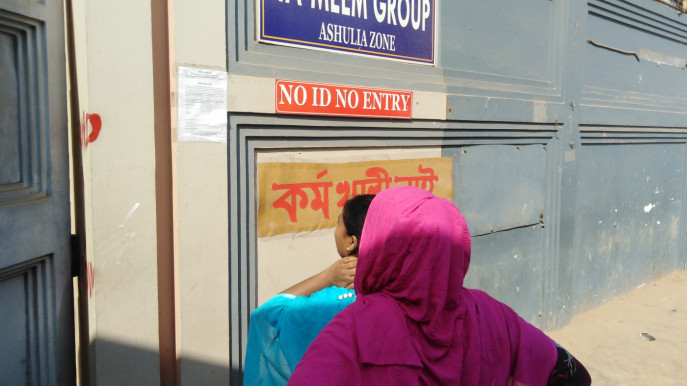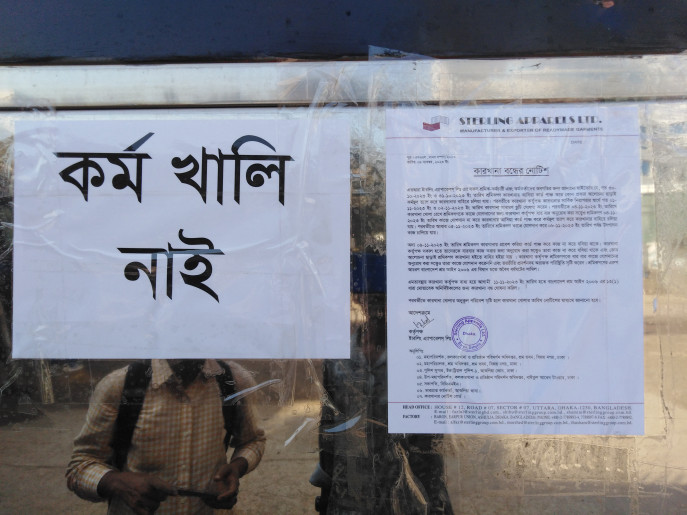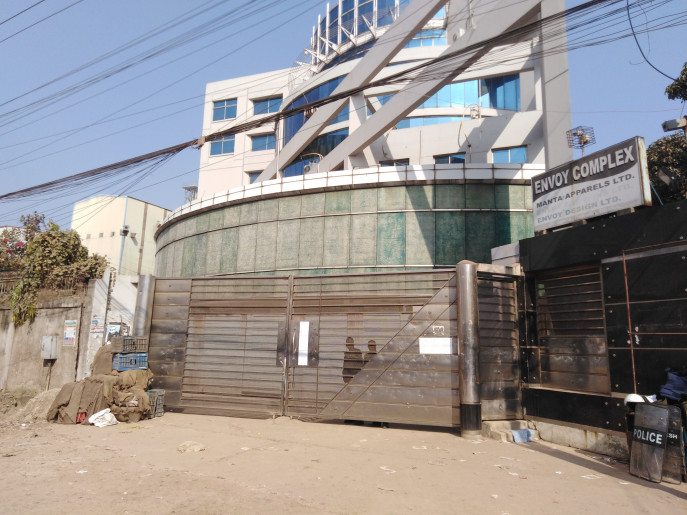Police arrested four workers in connection with vandalism during the protests
The overall situation in Ashulia remains calm as factory authorities shut down more than a hundred readymade garment factories for an indefinite period under Article 13/1 of the labour law.
The move comes after back-to-back workers’ protests demanding a hike in the minimum wage over the past three weeks.
Meanwhile, police arrested four individuals in five cases filed against 15 named and several unnamed in connection with vandalism during the protests, said Sarowar Alam, superintendent of Ashulia Industrial Police-1.

All of those arrested are factory workers, he said.
On Saturday, most of the RMG factories around Ashulia, including those of Envoy, Ha-Meem Group, Sharmin Group and Sterling Group, had “no vacancy” and factory closure notices hanging in front of the closed entrances.
Most of the notices were signed on Thursday, the day the Bangladesh Garment Manufacturers and Exporters Association (BGMEA) asked its members to halt all forms of recruitment at garment factories across the country following a meeting.
Many of the workers who did not know about the factory closures were returning home after seeing the notice in front of the factories in Ashulia’s Jamgora, Chaytala, Narsinghpur and Nischintapur areas.
“From 30 October to 9 November, the factory workers entered the premises in the morning for attendance and left without joining work. They also conducted vandalism both inside and outside the factory premises, causing significant financial damage,” one of the notices hanging in front of Sharmin Group’s Sharaf Embroidery and Printing factory in Ashulia reads.

The notice also says it is “not possible” to continue the company activities under such circumstances, and under Article 13/1 of the labour law, the factory will “remain closed for an indefinite period,” effective from 11 November.
It also mentioned that the factory will only reopen open the overall situation becomes favourable, and the dates will be conveyed to everyone concerned.
Sarowar Alam said there are 1792 RMG factories in Ashulia, Savar and Dhamrai.
“Around 130 factories are currently closed, and 100 of them are in Ashulia. Other factories are open,” he said.
Sarowar said they have deployed additional police personnel to maintain the overall security of the industrial zone.

Workers still persistent in their demand
Even though the factories shut down, workers are persistent in their demands for a minimum wage hike.
“The owners may shut down and reopen the factories whenever they feel like. But our demand remains. We demand at least Tk17,000 for the helpers and Tk23,000 for the operators,” one of the workers of a Sharmin Group factory said.
Another worker named Rifa said, “It is not possible to survive with a salary that was set five years ago. If you cannot increase the wage, reduce the commodity prices.”
The garments sector — the jewel in Bangladesh’s export crown, with exports reaching over $46.99 billion in the fiscal year 2023 — was ravaged by protests in recent weeks centring on a hike in the minimum wage.
On 30 October, at least two people were killed and about 40 injured in massive clashes between police and ready-made garment workers in several industrial areas in Ashulia, Savar, and Gazipur.
Following the weeklong clashes, the factory owners on 1 November agreed to pay higher minimum wages to garment workers than Tk10,400, which they proposed earlier.
















